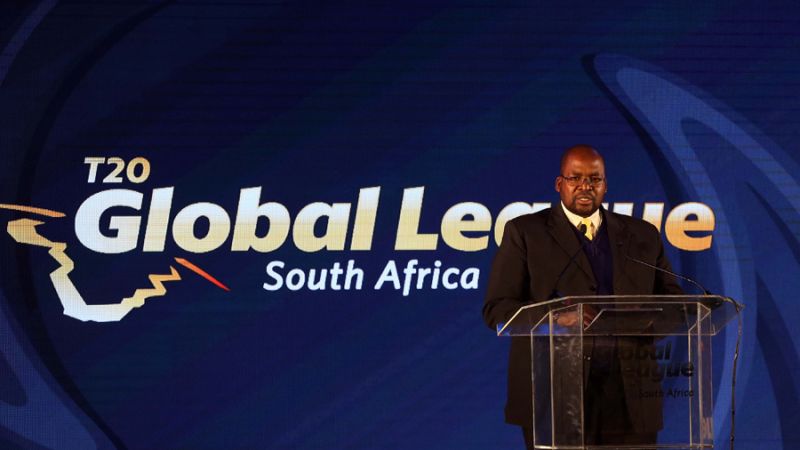Cricket South Africa has come under severe criticism from the country’s minister of sport, art and culture Nathi Mthethwa who questioned the organisation’s commitment to transformation at a parliamentary briefing on Friday. Despite CSA exceeding their transformation targets on the field for the 2018-19 season, Mtethwa was concerned that several senior positions since an overhaul of the board last year were occupied by white men.
In December 2019, CSA CEO Thabang Moroe was suspended on allegations of misconduct. His case is ongoing and Dr. Jacques Faul has been in the position of acting CEO since. Under Faul, Graeme Smith was appointed director of cricket, replacing Corrie van Zyl, who occupied the post in interim capacity but was also suspended.
Van Zyl has since returned to work, under Smith, who named Mark Boucher the national men’s coach. Boucher displaced Enoch Nkwe, who was working as interim team director and took the South African squad to India, where they were whitewashed 3-0. Nkwe was named as Boucher’s deputy. Boucher also brought in Jacques Kallis as batting consultant and Paul Harris as spin bowling consultant, in addition to Charl Langeveldt (bowling coach) and Justin Ontong (fielding coach).
At the parliamentary briefing, CSA President Chris Nenzani was asked if the appointments of Faul, Smith and Boucher represented a regression of the board’s transformation policy given that two of them had replaced black African employees. Nenzani’s response was that the appointments had been made on merit.
“I felt insulted with your [Nenzani’s] intervention when you said you only take people on merit,” Mtethwa said. “When we talk of cricket and going to the heart and core‚ you look at the CEO‚ you look at the director of cricket and the coach; you’ll find the deputy being an African.”
“You look at the batting specialist and you come and say to the nation that there’s nothing wrong and there’s no regression in transformation. I feel particularly insulted. It says that there’s a particular posture that has been taken that says Africans can be elsewhere in other areas that are not core ones. There’s no core area above the top five. It’s only one and that person is the deputy to the coach. I’m not going to be smiling at that kind of statement.”
Mtethwa found it incredulous that CSA could not find black African candidates to fill senior roles when it has been 26 years since the official end of Apartheid (1994) and almost three decades (1991) since the country’s black and white cricket boards were unified. “Does it mean that after 26 years‚ there hasn’t been anybody who hasn’t been able to fill one of these positions? The only people with merit are white. I take exception to that.”
Since readmission, CSA have had two black African CEOs, Gerald Majola and Thabang Moroe and six (of eight) presidents of colour including Krish Mackerdhuj, Percy Sonn, Norman Arendse, Ray Mali, Mtutuzeli Nyoka and now Nenzani. Apart from Nkwe’s brief stint with the national team, they have not had a home-grown head coach of colour, and only one permanently appointed national captain of colour, Hashim Amla.
Although there will be no sanctions against CSA at this point, earlier this month, Mtethwa met with the Eminent Persons Group expressing similar concerns and proposed legislation to address the pace of transformation. “The Minister raised his concern on the leadership and governance matters that have consistently undermined the development and transformation of sport in the country. He highlighted the urgent need for a fundamental discussion of re-imagining sport in the country, a major part of that being transformation,” a sports ministry press release from June 5 said.
CSA have long-stated their commitment to transformation and “welcomed” the EPG report when it was released, noting the areas that still needed improvement, especially at school level. “The participation of senior schools from townships (previously disadvantaged black residential areas) amounts to 515 schools of the 1023 participating high schools. The participation of girls in senior schools’ cricket is growing. This growth will accelerate in the foreseeable future,” a CSA statement said.
However, the concern lies more at the top where big changes have been made in response to the chaos that engulfed CSA late last year, In the space of a few weeks, their major sponsor Standard Bank opted not to renew their arrangement, three board members resigned and the South African Cricketers’ Association (SACA) voiced continued unhappiness with the CSA CEO. On December 6, Moroe was suspended, and 10 days later Nkwe was demoted and new appointments made. At the time, an organisation called the Black African Cricket Clubs accused CSA of a whitewash at senior level but Smith responded by providing an assurance of his commitment to transformation.
